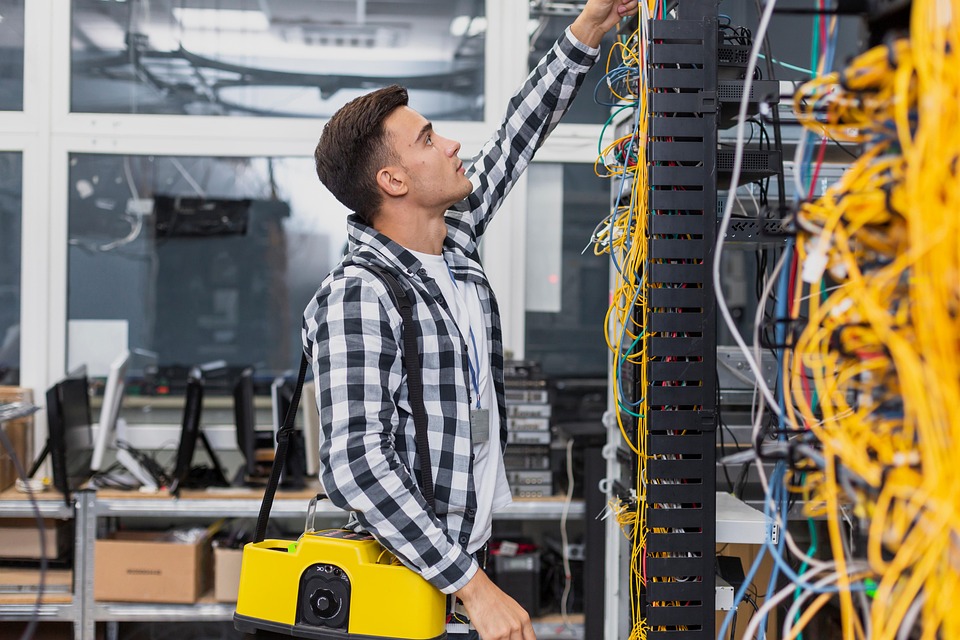Decentralized networks are transforming the way we interact, transact, and connect. These innovative systems take power away from a central authority and distribute it across a network of users. Why does this matter to you? Because embracing decentralized networks can elevate your life, enhance your security, and empower your choices in ways you might never have imagined.
Contents
What Are Decentralized Networks?
At their core, decentralized networks operate without a single point of control. Think of it as a community where everyone has a voice, rather than a top-down hierarchy. This approach fosters transparency, security, and resilience. In a world increasingly driven by technology, decentralized networks are not just a trend—they are a movement. Understanding their benefits can profoundly impact your everyday life.
1. Enhanced Security and Privacy
One of the most compelling benefits of decentralized networks is the increased security they offer. Traditional systems often rely on central servers, making them vulnerable to hacking and data breaches. In contrast, decentralized networks distribute data across multiple nodes. This means:
- Less single-point failure: If one node goes down, the entire network remains operational.
- Higher resistance to attacks: Hacking a decentralized network is considerably more complex.
Your personal data? It stays safer, giving you peace of mind. The less centralized your information, the harder it is for prying eyes to access it.
2. Greater Control Over Your Data
In a decentralized network, you regain control over your own data. No longer do you have to rely on corporations that monetize your information. Instead, you can decide what to share, when to share it, and with whom. This autonomy is liberating. You can engage in transactions without fearing your data will be sold or misused.
- Self-sovereignty: Own your identity online.
- Transparency: Know exactly how your information is utilized.
Imagine a world where your personal data is yours to command. This is not just a fantasy—it’s a reality with decentralized networks.
3. Resilience Against Censorship
Censorship can stifle voices and ideas. Decentralized networks provide a platform for free expression. Since there’s no central authority to dictate terms, content can flow freely, fostering diversity in thought and opinion.
- Open dialogue: Engage in conversations without fear.
- Support marginalized voices: Amplify perspectives that often go unheard.
In a decentralized environment, you can express yourself boldly. Your voice matters, and it deserves to be heard.
4. Lower Costs and Increased Accessibility
Decentralized networks can significantly reduce costs associated with transactions. By cutting out intermediaries, you save money. This is especially crucial in sectors like finance, where traditional banking fees can add up quickly.
- Direct transactions: Send and receive funds without middlemen.
- Global access: Participate in the economy from anywhere, even if traditional banking options are limited.
Think about how much you could save. Lower costs mean more resources for what truly matters in your life.
5. Enhanced Innovation and Collaboration
When power is distributed, innovation thrives. Decentralized networks encourage collaboration among users, leading to more creative solutions and advancements. This collaborative spirit can lead to breakthroughs in various fields:
- Open-source projects: Developers around the world can contribute and innovate together.
- Community-driven initiatives: Users can come together to solve local problems.
You’re not just a spectator; you’re part of a movement. Your ideas can contribute to something bigger, something transformative.
6. Improved Efficiency and Speed
Decentralized networks often operate faster than their centralized counterparts. With no need to go through a central authority, transactions can occur almost instantaneously.
- Streamlined processes: Reduce the time it takes to complete transactions.
- Real-time updates: Stay informed and engaged with live data.
Imagine sending money to a friend and having it arrive in seconds rather than days. This efficiency is not just convenient; it’s empowering.
7. Building Trust Through Transparency
Transparency is a cornerstone of decentralized networks. Every transaction is recorded on a public ledger, allowing anyone to verify actions. This level of openness builds trust among participants.
- Accountability: Users can see how resources are allocated.
- Credibility: Trust is earned through actions, not promises.
In a decentralized network, you can engage with confidence. You know that what you see is what you get—no hidden agendas.
Bottom Line
Decentralized networks are more than just buzzwords; they represent a paradigm shift in how we connect and interact. From enhanced security and data control to fostering innovation and trust, the benefits are profound. As you explore these networks, remember that you hold the power to shape your own digital destiny.
Embrace the freedom, security, and community that decentralized networks offer. Ready to dive in? Start exploring the possibilities today!
FAQs
What is a decentralized network?
A decentralized network is one that distributes data and control across multiple nodes, rather than relying on a single central authority.
How do decentralized networks ensure security?
By spreading data across various nodes, decentralized networks reduce the risk of hacking and data breaches, making your information more secure.
Can I trust decentralized networks?
Yes, the transparency inherent in decentralized networks builds trust among users, as all transactions are recorded on a public ledger.
For more insights into decentralized networks and their impact on society, check out articles from Harvard Business Review and World Economic Forum.








